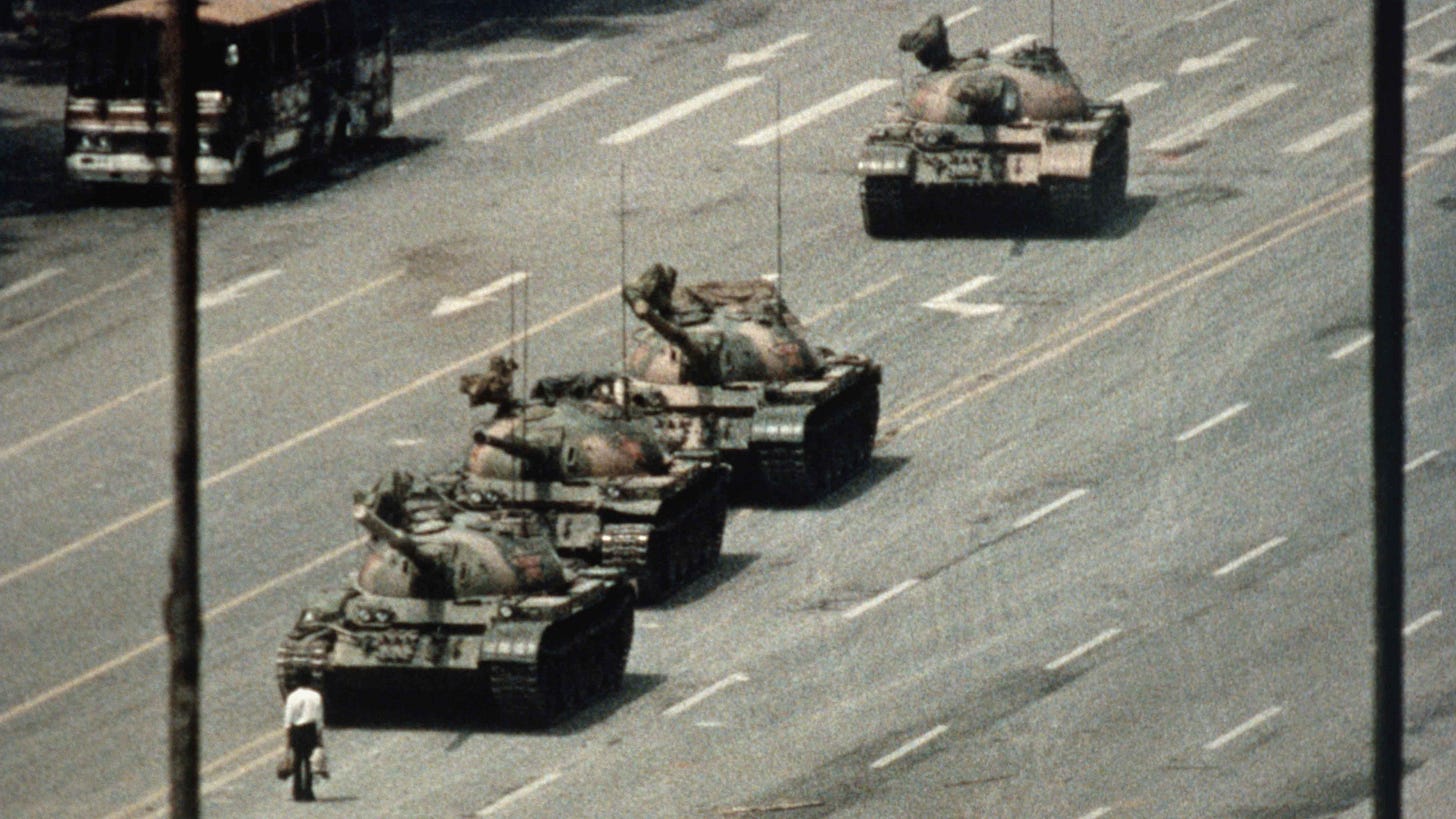Permawar
As the US careens towards a conflict with China, Russia, and most of the rest of Asia, let's start the process of thinking it through.
“Oceania had always been at war with Eurasia. The enemy of the moment always represented absolute evil, and it followed that any past or future agreement with him was impossible.” George Orwell, 1984
With each passing day, the drumbeat of a US war with China, Russia, and most of the rest of Asia gets closer and more inevitable.
From a mutual global sabotage and cyberwarfare campaign (fires, explosions, derailments, accidents, hacks, disruptions, etc.) to
a US chip embargo that denies China the ability to build advanced AI and robotics unless they invade Taiwan (to seize TSMC’s factories, which produce ~90% of the world’s advanced chips) to
US drone shipments to Taiwan and threats by the US military’s threat to unleash a “drone hellscape” using classified assets in the Taiwan straights if China does attack.
Given how close we are to this war and how mentally unprepared we are, let’s build some frameworks to generate insight. Hopefully, this effort isn’t necessary, but if it does happen, it will make adapting to it easier.
Unnecessary
The first thing to understand about this war is that it would have been entirely avoidable if the US had utilized historical American pragmatism and first principles when building its post-Cold War national security strategy. It did not. Instead, it allowed its decision-making to fall victim to greed, trendy theories, and tribalism. These flaws led to a policy that:
Treated Russia as an enemy, even though they were democratizing
Embraced China as a partner, even though its totalitarian government was still in control
Allowed a networked swarm that demonized Putin for Trump’s election in 2016 to drive its policy response to the invasion of Ukraine.
Let’s expand on a few of the decisions that put us on this trajectory.
Containing Russia
In the mid-1990s, at the urging of millions of bureaucrats and businessmen (Eisenhower named this group the military-industrial complex based on his experiences with it), the US embarked on a policy of NATO expansion to contain Russia. George Kennan, the father of Containment* and the strategist best able to critique the policy, was horrified at this haphazard decision. To him, it was evident that this new policy would lead to a disaster that would squander the victory in the Cold War (1997/98 NYTimes op-eds) that he and others worked so hard to achieve;
“expanding NATO would be the most fateful error of American policy in the entire post-Cold War era.”
“I think it (NATO expansion) is the beginning of a new Cold War. I think the Russians will gradually react quite adversely and it will affect their policies. I think it is a tragic mistake.”
“Don’t people understand? Our differences in the Cold War were with the Soviet Communist regime. And now we are turning our backs on the very people who mounted the greatest bloodless revolution in history to remove that Soviet regime… Of course, there is going to be a bad reaction from Russia, and then [the NATO expanders] will say that we always told you that is how the Russians are — but this is just wrong.”
George was right. NATO expansion created precisely the outcome he anticipated back in 1997: a new Cold War with Russia.
Embracing China
The second significant error occurred at the end of the century when, at the urging of multinationals and Wall Street, the US government pushed for China’s entry into the WTO (World Trading Organization), although a totalitarian Communist government still ruled China.
The policy made the ahistorical claim that capitalism would inevitably lead to democracy in China (counterpoint; fascism is totalitarian capitalism).
The policy was left unattended due to decades of strategically unsound misadventures, from nation-building (Afghanistan, Iraq, etc.) to toppling countries (Iraq, Syria, Libya, etc.).
When the US noticed China as a peer competitor, it was already hopelessly dependent on Chinese manufacturing (a dependency China doesn’t share).
Now, the US is rapidly moving to contain China by bolstering its regional alliances and building a strategic “thorn” that perpetually threatens them (in Russia’s case, Ukraine, in China’s, Taiwan). Unfortunately, as it is prone to do, the US has decided to embark on this strategy without seriously considering its consequences or minimizing its vulnerability to an escalation in hostilities.
Extreme Dependence
Let’s put US dependence on China into a useful frame. As a friend recently said, all it takes is a stroll down the aisle in Home Depot or Walmart to immediately understand how dependent the US has become on China.

